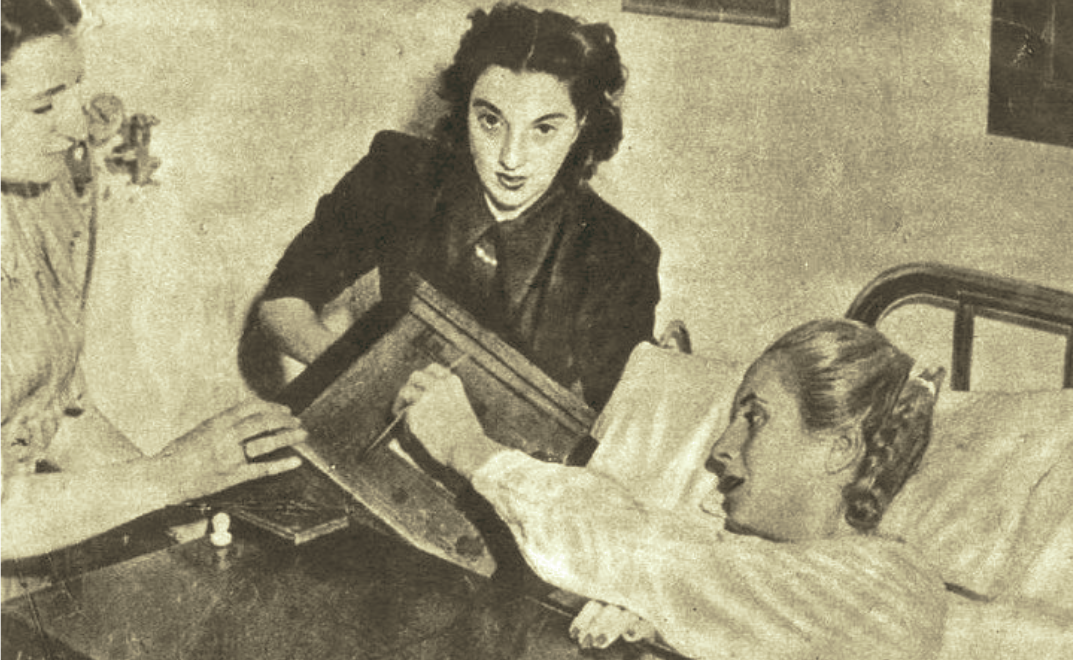RIO DE JANEIRO, BRAZIL – It was just another Sunday for the rest of the world, but not for Argentina. On November 11, 1951, more than three million Argentine women went to the polls to participate in general elections for the first time, culminating decades of tireless struggle for women’s political rights.
In that election, which made possible the second term of President Juan Domingo Perón (1946-1955 and 1973-1974), all the discrepancies that today, seventy years later, divide Argentines also surfaced: the so-called “rift” between supporters of Peronism and its detractors.
Read also: Check out our coverage on Argentina
“For the anti-Peronists, at that time, Perón won because women had voted for him, for Peronism too, but the reality is that Perón would have won even if women had not voted,” Adriana Valobra, Ph.D. in History from the National University of La Plata, tells Efe.

THE ROAD TO UNIVERSAL SUFFRAGE
The first debates about universal suffrage began at the end of the 19th century, with the arrival of news from other parts of the world about a movement, feminism, which brought together a wide range of demands for women’s civil, social and political rights.
However, the right to vote did not materialize in Argentina until 1947, thanks to the passing of Law 13.010, which enshrined political equality between men and women.
According to Valobra, both the political parties and the feminists themselves had “very different positions” on the viability of women’s suffrage, an issue traversed by existentialist beliefs and partisan interests.
“In the Peronist Party itself, there were some legislators who wanted compulsory voting, others who did not… Many feminists did not think it was appropriate, and others who did not consider themselves feminists, but rather a women’s movement, did demand those rights,” says the historian.
One of the most visible faces of that movement, who never defined herself as a feminist, was the wife of the then-president Juan Domingo Perón, Eva Duarte (1919-1952), better known as Evita, a woman who took up the demands of other predecessors such as Alicia Moreau de Justo, Julieta Lanteri and Elvira Rawson.
“I believe that Evita made her contribution for this law to be sanctioned. It could also not have been sanctioned, but with today’s newspaper, it seems obvious to all of us that it was going to be so,” Valobra points out.
THE 1951 VOTE
After four years of intense work to prepare the electoral roll, on November 11, 1951, Argentine women voted for the first time in the presidential and legislative elections, with a turnout of 90.32%, higher than men.
The day also served to open the doors of Parliament to women: a total of 23 female deputies and six female senators took their seats in 1952, “greatly modifying the socio-professional profile of both chambers,” according to Valobra.
However, women’s political representation plummeted after the 1955 coup d’état. It did not recover until the 1990s with the approval of the quota law, which established a minimum of 30% of women on party electoral lists.
Already in 2017, Congress passed a law establishing gender parity in candidate lists.
A RIFT STILL PRESENT
The debates around women’s suffrage showed that, at times, ideological biases prevail over any other cause, a reality that appears reflected in the play “Eva y Victoria”, first premiered in 1990 and which returned to theaters in the South American country a few months ago.
“We understood that it has an extraordinary resonance in the today and now of Argentina. At the same time, it is tough to recognize this, that we have been bogged down for 70 years in this same difference and are still in this same conflict,” Manuel González Gil, director of the play, told Efe.
This play imagines a fictitious dialogue between Evita herself and the Argentine Women’s Union founder, the intellectual Victoria Ocampo. In the conversation, Evita asks Victoria for her support to push for women’s suffrage, without much success due to the latter’s opposition to Peronism.
“Victoria begins to think: what is more convenient, to give a political gain to Peronism or that women have this right, which they will surely get later on? This is going through Victoria’s head when she refuses to collaborate with Evita”, tells González, about a political division that prevails in today’s Argentina.
Next November 14, more than 34 million Argentines are called to vote in new elections that will renew half of the Congress and a third of the Senate, chambers where women have 106 and 29 seats, 41.2% and 40.3% of the total, respectively.
In any case, a political panorama would be “fierce” for Evita and Victoria due to the polarization that persists in the country seventy years later. “I believe that this is not the Peronism that Eva dreamed of, and this reality would have been fierce for Victoria Ocampo”, concludes the playwright.

